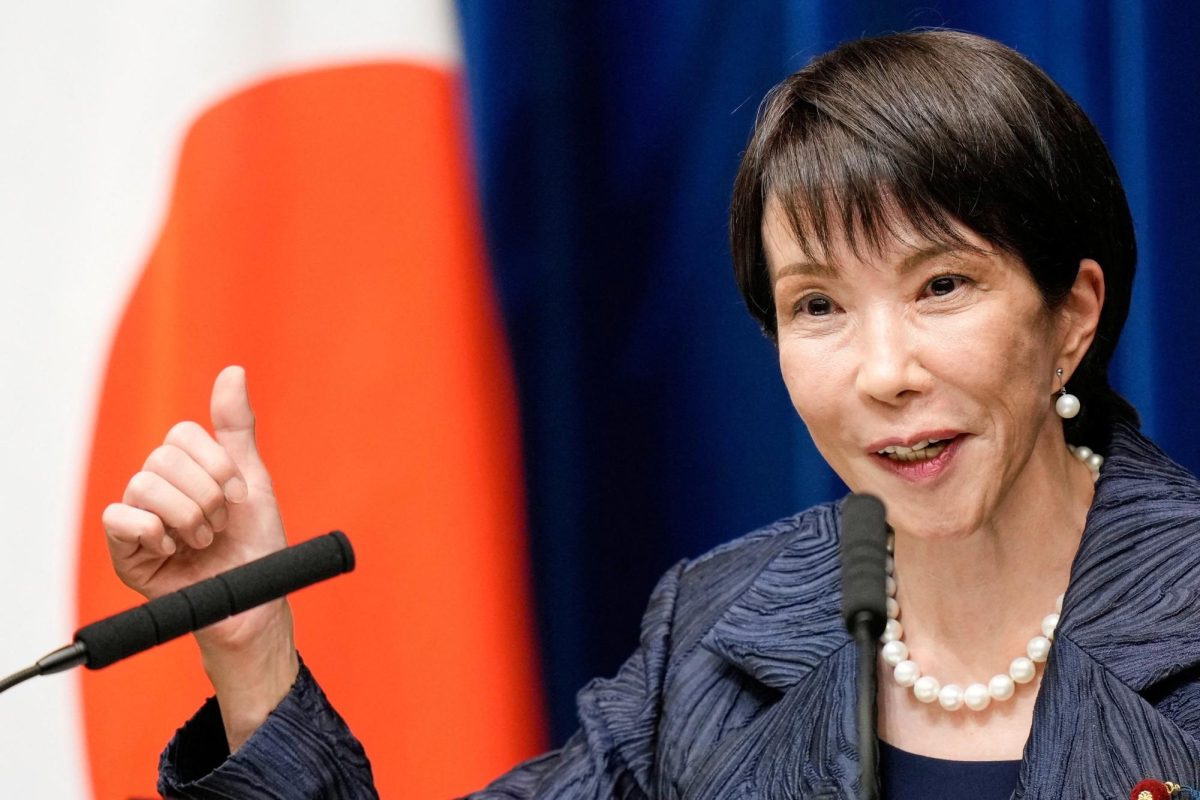Sanae Takaichi was elected head of the Liberal Democratic Party on October 4, making her the first woman to become the party’s leader in its history. Although her path to the prime ministership did not come easily — especially as opposition parties attempted to form a coalition against the LDP — she ultimately secured the position, making her Japan’s first female prime minister.
As the first woman to achieve such a political feat, her success has been celebrated across both domestic and international media. Moments after Takaichi’s election, the Associated Press (AP) wrote, “In a country that ranks poorly internationally for gender equality, the 64-year-old Takaichi makes history.”
Indeed, Takaichi’s achievement comes at a time when Japan struggles to adequately represent women across all sectors of society. Recently, the country ranked 118th out of 148 countries in the World Economic Forum’s 2025 Global Gender Gap Report. Given Japan’s poor gender equality initiatives, Takaichi is recognized for breaking the glass ceiling within Japanese politics.
However, despite Takaichi’s supposed significance in gender progress, Takaichi has worked her way up to the top of Japanese politics with her tough stance and hard-lined conservative views.
Some of Takaichi’s core principles include her opposition to same-sex marriage and support for an all-male succession to the Japanese imperial throne. Many worry that Takaichi will also exacerbate diplomatic tensions if elected as prime minister, as she is a frequent visitor to the Yasukuni shrine that enshrines A-class war criminals. What’s more, her disapproval of the passing of a law that allows women to keep their maiden name reflects her complicated stance on women’s rights and perhaps reveals that she is not necessarily committed to promoting gender equality.
Takaichi is also known for her controversial claims stemming from her conservatism. In her acceptance speech at the LDP elections, Takaichi called on party members to “work like a horse” and declared that during her term in office, she will “abandon the notion of work-life balance.” The intensity of her ideologies reflects a growing trend of a rising right-wing ideology in Japan. In recent years, Japan’s right-wing party “Sanseito” has been gaining traction nationwide, and its ‘Japanese First’ and anti-foreigner policies have attracted a growing base of supporters.
However, the real reason for her success is not her conservative ideologies or appeal to populism. The driving force behind her victory in the LDP election was the support of powerful male politicians—most notably Taro Aso, an influential senior figure who leads his own political faction. As he commanded his faction to vote for Takaichi, Aso was able to secure the majority of her votes in the election runoff. Through Aso’s endorsement and favorable relationship, Takaichi conquered the internal power struggles of Japanese politics.
To thrive as one of the few female politicians, Takaichi has, for years, shown her devotion to Aso Taro and countless other male politicians. The Associated Press claims, “as leader she would have to show loyalty to influential male heavyweights. If not, she risks a short-lived leadership.” For decades, Takaichi was forced to behave in ways that align with the party faction leaders to conform to the norms of a male-dominated environment. To reach her current position, Takaichi must be well-liked, even if that means acting against the principles of gender equality that she should be fighting for.
Although Takaichi is crowned the first-ever female to lead the LDP party and become the prime minister of Japan, the question remains whether she has really broken the glass ceiling. To promote gender rights, Takaichi must aim to empower women rather than seek approval from male politicians for her personal gain. Yet, Takaichi herself currently lacks the courage and conviction to do so.
The public’s current fascination with Takaichi is immense, as many celebrate her historic achievement. However, realizing that the risks overshadow the substance of her policies and values is essential. We must look beyond her gender and hold her accountable for the kind of leader she will prove to be, rather than commending her for a glass ceiling that she, in actuality, hasn’t broken.























































